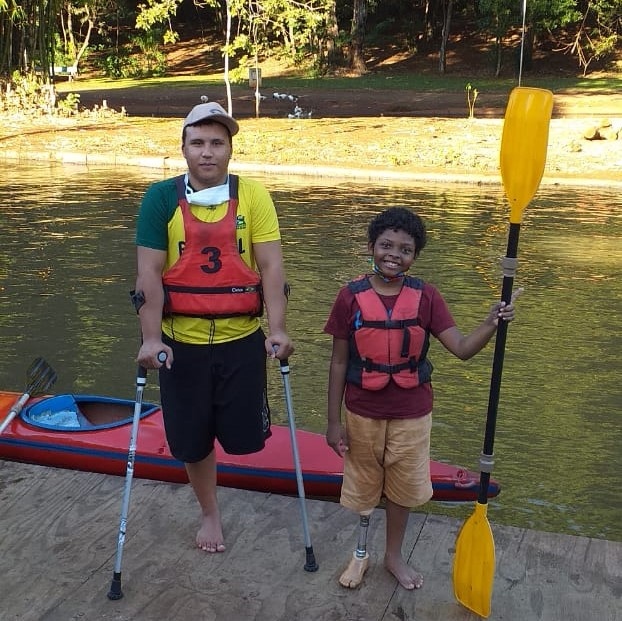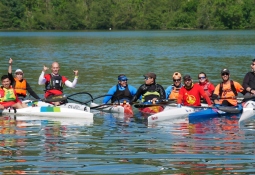There’s a paracanoe revolution underway on the waterways of Brazil, inspired by the medal winning performances of their team at last year’s Paralympics in Tokyo.
Larger-than-life characters like Fernando Rufino de Paulo, with their infectious personalities and incredible back stories, have opened the eyes of a nation who first fell in love with the sport when it made its debut in Rio in 2016.
By Tokyo the love affair was already underway. After winning a solitary bronze and finishing eighth on the medal table in 2016, Brazil picked up one gold and two silver in Tokyo, leapfrogging its way to equal third on the standings behind paracanoe powerhouses Great Britain and Australia.
In Londrina, around 1000 kilometres inland from Rio, 10-year-old Breno Henrique Pereira dos Santos is helping his coach tidy up after a busy day on the water. He’s new to paracanoe, but he’s loving every minute of it.
“It’s so good to help me build muscles, and it makes it so much easier to get from one to get around,” Breno said.
“It’s quite easy to do. The most important goal at the moment is not to be a winner, but to compete at a championships.
“But of course, one day I would love to get to the Paralympics.”
Breno was just three-years-old and waiting for a school bus when an out of control car mounted the kerb and hit the young boy. Doctors worked frantically on Breno, but nothing could be done to save his lower right leg.
After several years of physio and rehabilitation, it was suggested Breno take up a sport to help build back his muscles and to stay active. He was shown a list of possibilities, but didn’t take long to decide on paracanoe.
On one of his first days at the canoe centre he saw ICF paracanoe world champion and 2016 Paralympian Igor Tofalini training.
It’s a common story right through Brazil, where young athletes are taking to the water and dreaming of becoming the next Rufino. The South American nation was one of the first to fully embrace the sport, and now it’s reaping the benefits.
Later this year the Brazil Canoe Confederation is planning to hold its first underage paracanoe championships, with races for U15, U18 and U23. The attraction of racing against paddlers of a similar age is certain to whet the appetite of kids who may have been frightened off by the prospect of having to race older athletes.
Gelson Moreira is Breno’s coach, one of about nine paracanoe athletes he currently has training under his watchful eye. He started coaching in 2013, with Tofalini one of his first students. In the Brazilian paracanoe revolution, Gelson Moreira is one of the most important players.
“The Brazilian Confederation is working really hard to promote paracanoe, and of course the success of our athletes is inspiring many younger paddlers,” Moreira said.
“Canoeing is not the most popular sport in Brazil, but it is getting stronger and stronger.”
As we came to the end of our chat, I asked Breno if the Brisbane Paralympics in 2032 was his goal. Yes, he said, but I could tell by his smile that he was hoping Brisbane would be his second Games. In 2028 he’ll be 17 and, more importantly, a seven-year paracanoe veteran.
One suspects if he goes to Los Angeles, he’ll be one of many proudly wearing the Brazilian colours.


